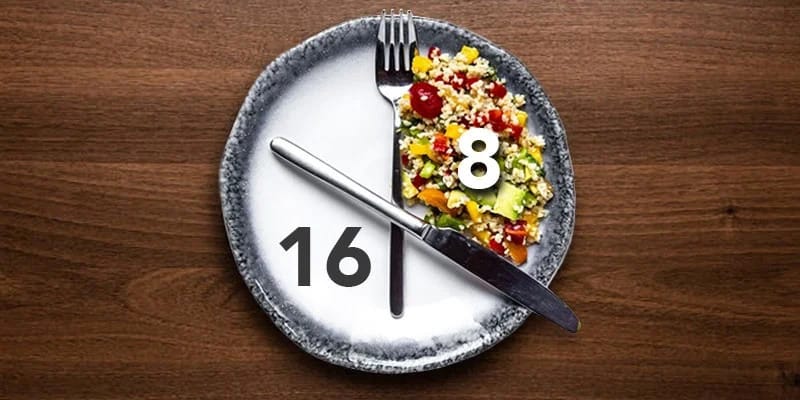- 40-something
- Posts
- This 8/16 method breaks down and recycles damaged cells
This 8/16 method breaks down and recycles damaged cells
Following it is one of the best ways to maintain overall health.

My mum called to report that my beloved cousin, who’s been suffering with pancreatic cancer since 2022, has taken a turn for the worse. I could hear she was upset, trying to articulate her words between stifled emotions, so I reminded her that she (and everyone else) had better stop crying about my cousin’s transition to the next life. All these tears are like an unseen weight that makes it difficult for the soul of the sick person to detach. I recall being taught in religious school that we should try not to cry when someone is passing over, and instead understand that death is in fact a release from this temporary world and a return to our creator – To God do we belong, and to Him do we return.
In typical ‘my mum’ fashion, she retorted with, “Nonsense! Then why are you so fussy about what you eat? You’re also scared of dying.” She didn’t wait for my response, but what my dear mother fails to understand is that I don’t prioritise leading a health-conscious life in order to cheat death. Not at all. I watch what I eat precisely so that I can live life to the fullest until my time runs out without being bogged down by aches, pains, and medical bills. In short, I believe in eating to live, not living to eat.
One critical strategy I rely on to maintain general health is intermittent fasting. This involves eating only two meals per day: brunch and dinner, with no unnecessary snacking in between. This morning, mum’s call came in at about 11 AM, so hubby and I decided to call off our visit to the hospital since my cousin’s immediate family requested we all stay home and pray rather than fill the hospital’s waiting room. So, with our plans foiled, I brushed a dozen chicken samoosas with olive oil and popped them into the airfryer for brunch at 1 PM. My next meal will most likely only be a steak and avo salad at around 6 PM, which means that in a 24-hour day, I achieve at least an 8-hour eating window, followed by 16 hours of wet fasting.

“So, what’s the point?”, I hear you ask. Well, oh curious one, the benefits are three-fold:
Eating less often means you spike your blood sugar less often, and less of the hormone insulin is needed. Note that every time insulin is spiked, you risk causing your cells to become insulin-resistant, which means sugar levels can remain high in your bloodstream (hyperglycemia) causing a host of issues, including PCOS, damage to nerves, kidneys, and blood vessels, and resulting in type 2 diabetes and general inflammation.
Fasting for 16 hours straight kickstarts a process called autophagy. This is when the body breaks down damaged cells and recycles them for nutrients; an excellent maintenance strategy which contributes to overall health.
Since you’re not getting glucose for energy from food while fasting, your body does this amazing thing where it goes into ketosis, turning stored fat into ketones; a much better fuel for the brain. So, you function better and use up excess fat at the same time.
Now that you know about the benefits of eating less frequently within a smaller time window, I sincerely hope you’ll make an effort to religiously follow the 8/16 method. Interestingly, you won’t feel hungry in the morning – I certainly don’t. Note that you should try to stay hydrated throughout the day by drinking good-quality water, lemon water, herbal teas, and even enjoy a “no fun” morning coffee, but avoid fruit juice and alcohol as these will raise blood sugar and prevent ketosis.
I hope you’ve enjoyed reading this post 🙂 Please subscribe here (it’s free!) for more beneficial information.
Happy fasting!
Umayya